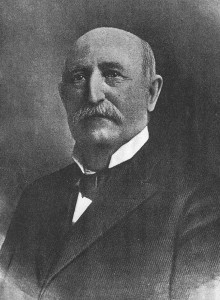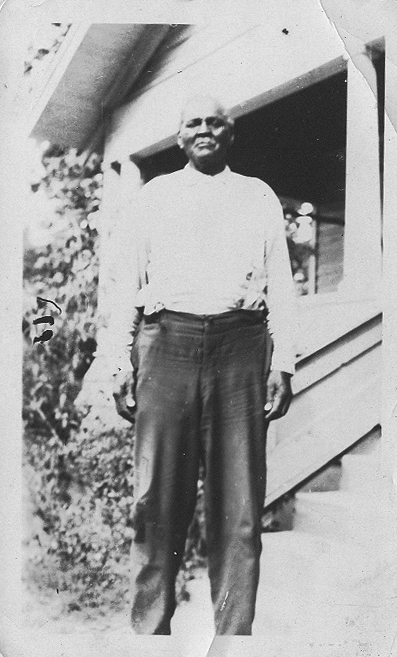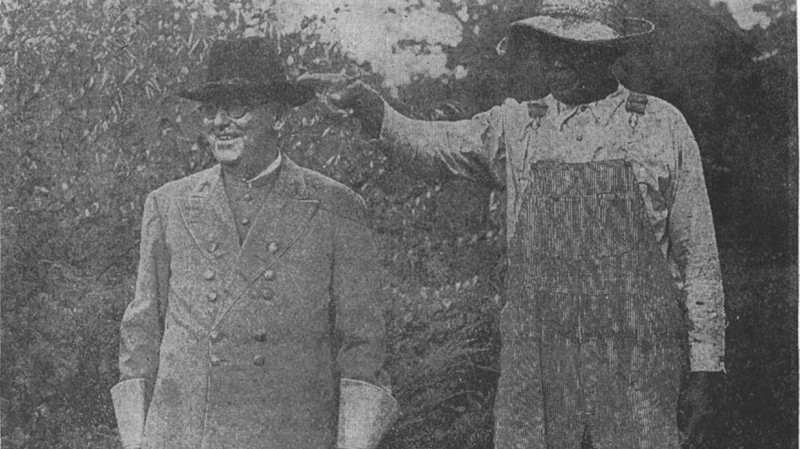THE BEGINNINGS OF A COMMUNITY THAT SURVIVES

The Shepherd Community is named for Judge Lewis Shepherd who was the son of one of the largest slaveholders in Hamilton County. Lewis’ father, Col. Lewis Shepherd owned 24 slaves and thousands of acres in Hickory Valley just 2 miles from what is now Shepherd. The farm “Overseer” was John Walker. Col. Shepherd died in 1856 when he was 60 years old. His son Lewis having been born in 1846 when James K. Polk was president was then only 10 years old. The widow Shepherd had a $150,000 estate at the start of the Civil War.
Lewis Shepherd studied at Aldehoff’s Institute and at Burritt College in Van Buren County. When he was 15, he enlisted with the Confederate forces and fought throughout the war. He was with Gen. Nathan Bedford Forrest at the Battle of Chickamauga and with Gen. Joe Wheeler in his cavalry raids in Middle Tennessee. He was finally captured and spent a year in prison at Camp Morton at Indianapolis. Following his exchange in February of 1865, Shepherd joined the cavalry of Gen. J. C. Vaughn in Southwestern Virginia. After the surrender at Appomattox, he was with the escort of President Jefferson Davis until the cavalry was disbanded in Washington, GA in May of 1865.
When Lewis and Lilah moved to their new home in Chattanooga, they brought with them a former slave, Thad Rankin. Thad had been a slave in Dunlap, Tennessee which is located about 30 miles from Chattanooga across Signal Mountain. His master was Squire Bill Rankin. (Slaves took the last names of their masters.) Thad was 11 years old when the Civil War started. After the war he went to work for Alexander and Sarah Pope in Sequatchie County. They were the parents of Lilah Pope Shepherd, the wife of Judge Lewis Shepherd. Thad was brought to what became known as Shepherd by the couple. He was to be a servant and to engage in sharecropping. He worked for the Shepherds for over 60 years.

Thad was a proud stately looking gentleman who was 6’ 4” tall. He was treated kindly by the Shepherds and was the only Black allowed to fish from the Shepherd’s family pond without permission. They referred to him as “Uncle Thad” in later years. This was a term that was used by whites during those days to show respect or to suggest favor to Blacks.
When Thad was 89 years old, he was asked by a newspaper writer “Where were you on the day of the Battle of Chickamauga?” (He was
a boy of 14 at the time of the Chickamauga battles.)
“I was at Taylor’s Ridge near Dunlap. I was refugeed with all the other slaves of my master, Capt. Will Rankin of Dunlap until he could “whop” the Yankees. You know everything the Yankees passed was freed and “Marster” was keepin’ us outa the way.” We wuz about 30 miles from the battle, but we shore could hear it and we could feel the ground shake. Early at daybreak-the battle, you know was fought on Sunday-those big ole guns talked as regular as a hog a-walking and kept it up all the time between sunup and dark. About 3 or 4 o’clock in the afternoon, all the smoke started to settlin’ so thick you could hardly see your hand in front of your face. The light muskets sounded like kindlin’ a-crackin’. The refugee journey lasted as far south as Atlanta before the end of the war and emancipation.”
Thad recalled that the old horse he was driving for his mistress that eventful September Sunday was named “Bushwhacker” and that he fed him “hard tack” for the lack of oats on the family’s weary jaunt toward the South, ever fearful that the Yankees were coming and capture was near. He recalled that “Squire Rankin” brought them all the way back to the old home place at Dunlap before they were freed.
Thad continued to work on a farm after his freedom. After his marriage in 1877, he began serving the Lewis Shepherds when they lived in Sequatchie Valley and followed them when they moved to Chattanooga.
Thad was born on April 17, 1849 and died in 1951 at the age of 102. He is buried in the Shepherd Citizens Cemetery.
